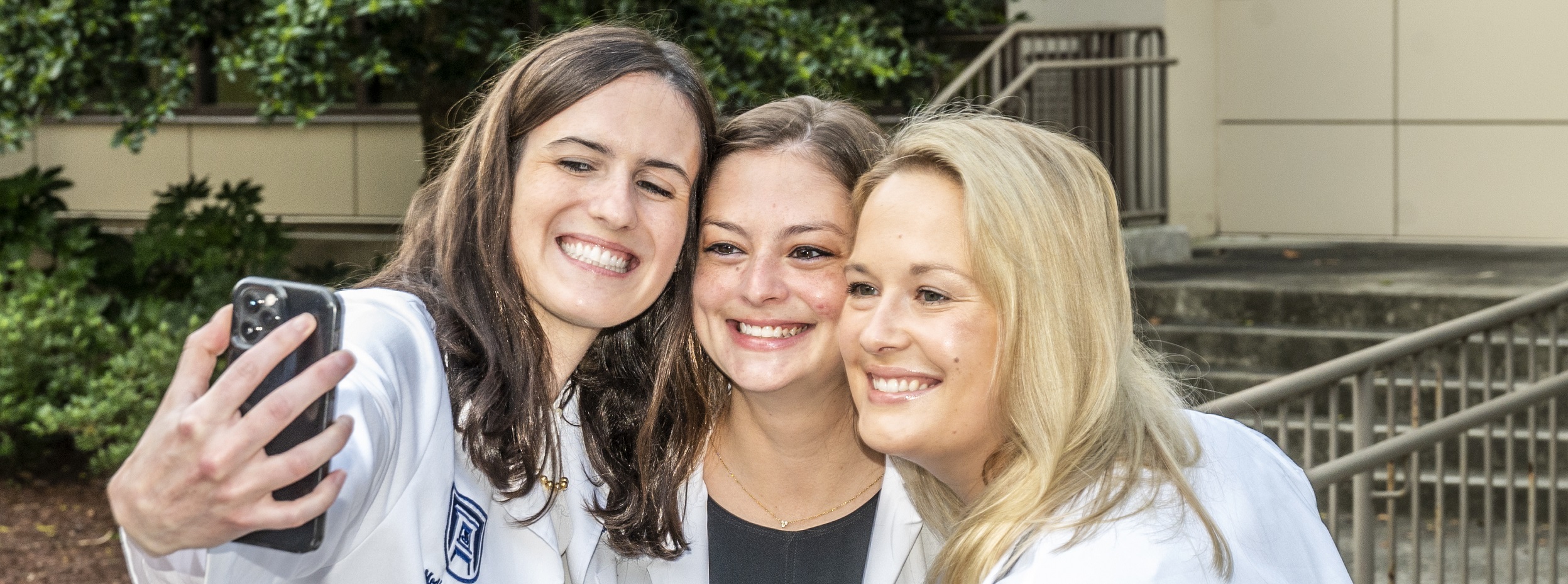
Ob/Gyn Resident Wellness
Ensuring the well-being of our Residents
The Council for Resident Education in Obstetrics & Gynecology (CREOG) established a task force to look into Physician Satisfaction and Wellness as a CREOG initiative in 2014. The culture of residency is a setup for burnout due to high levels of stress from heavy workloads, long hours, and personal life changes. Also, the challenges of working with individuals who are sick, even dying, can negatively impact the emotional health of physicians. Obstetrics & Gynecology physicians have a higher risk of burnout and substance abuse when compared to nearly all other fields of medicine.
Wellness means caring for the caregiver to encourage professional satisfaction and humanism in medicine. Wellness is a daily practice of behaviors that promote health within the physician and the medical community.

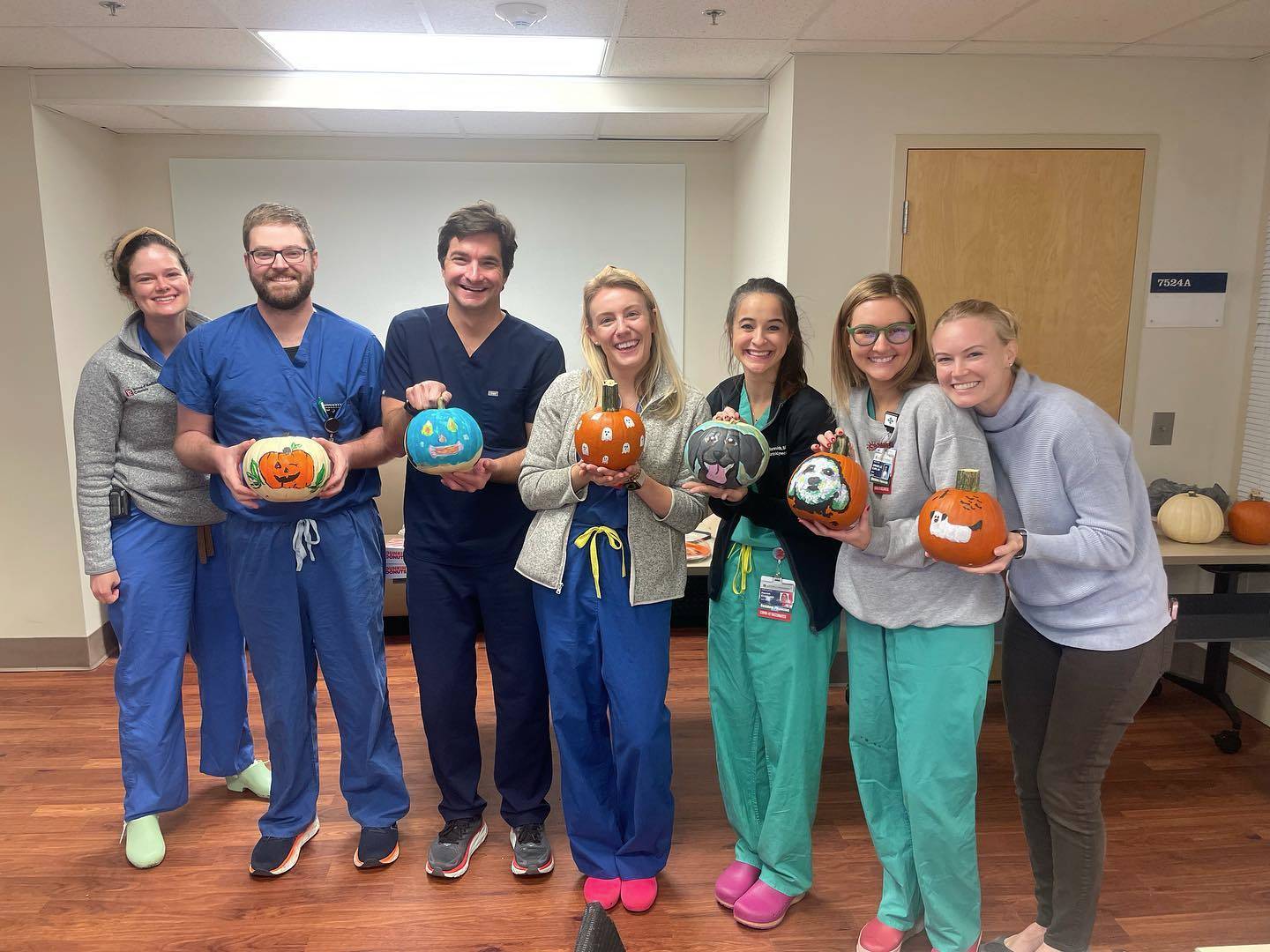
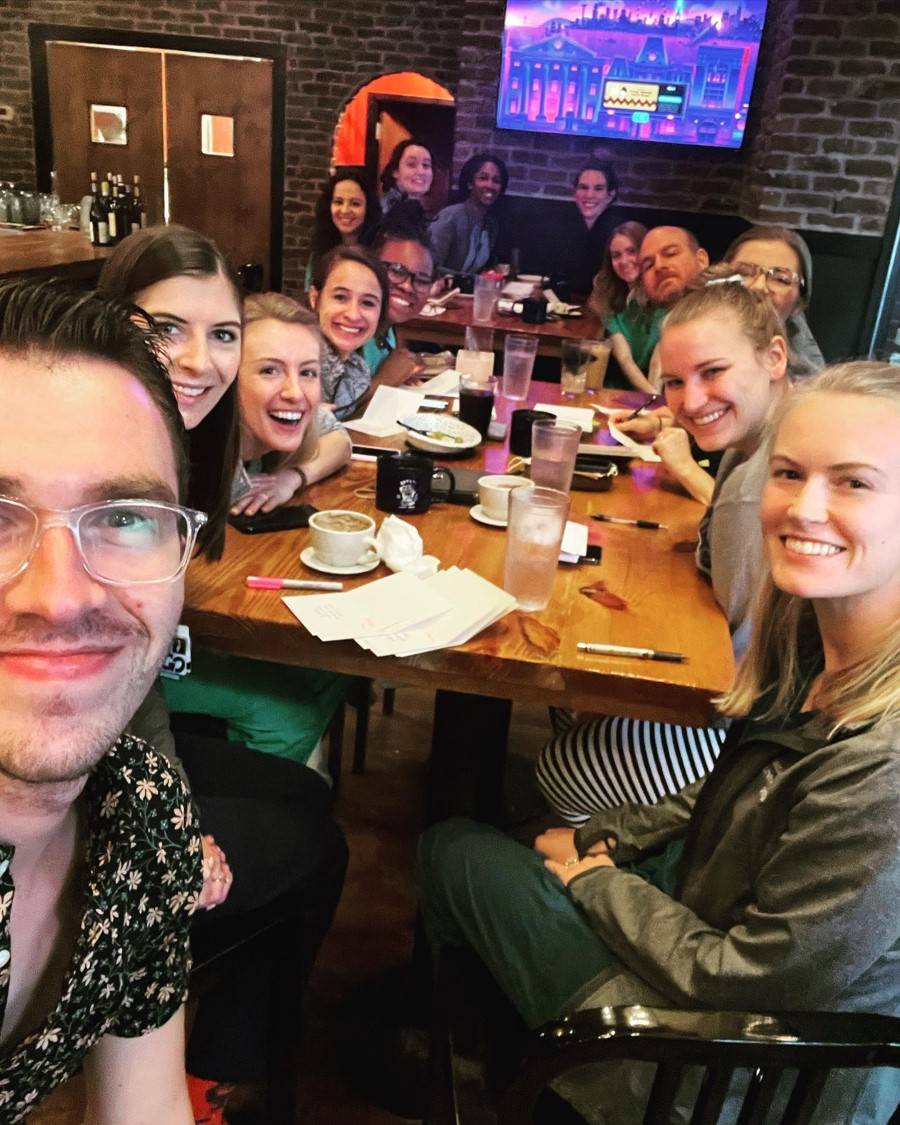

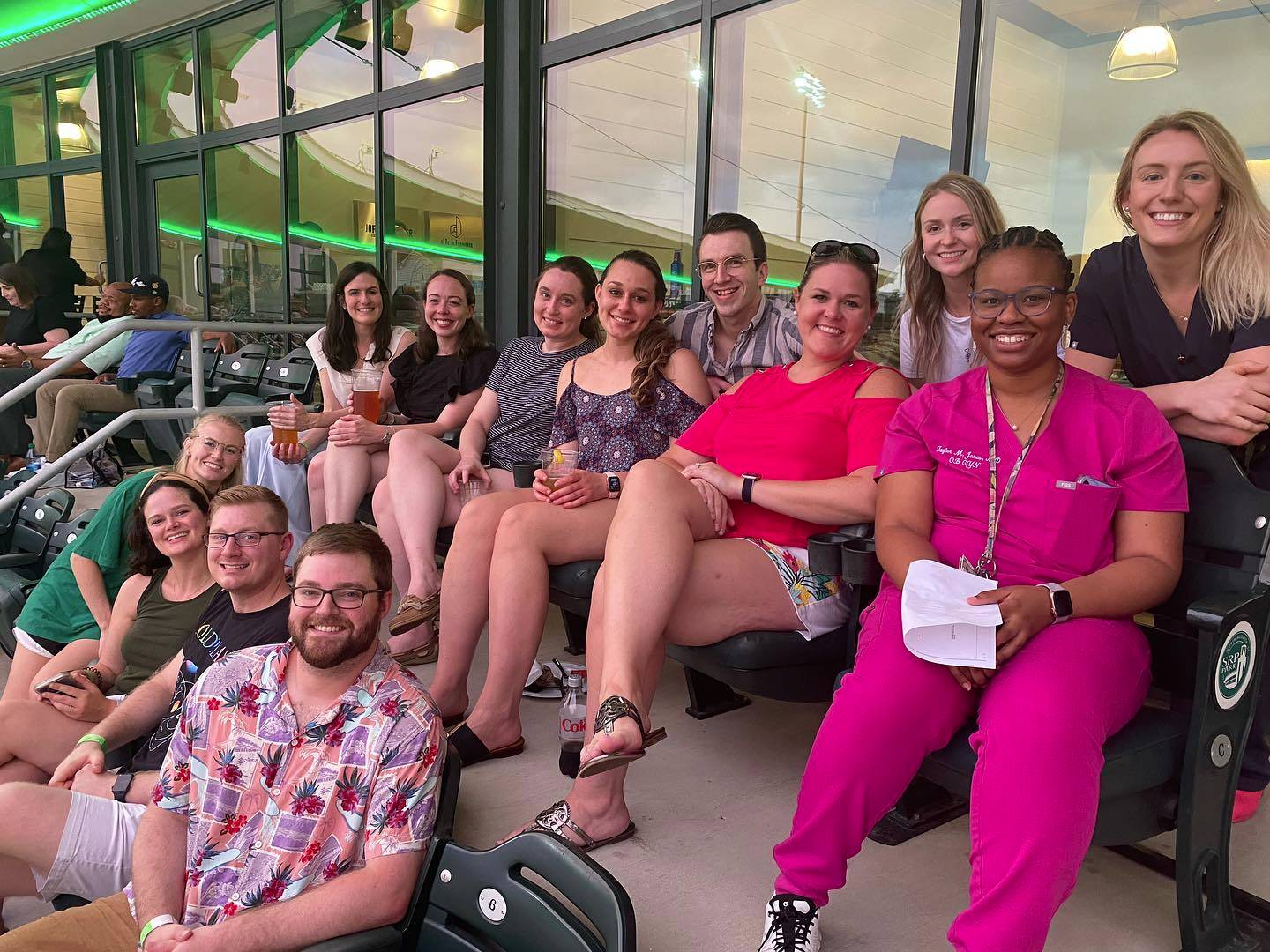
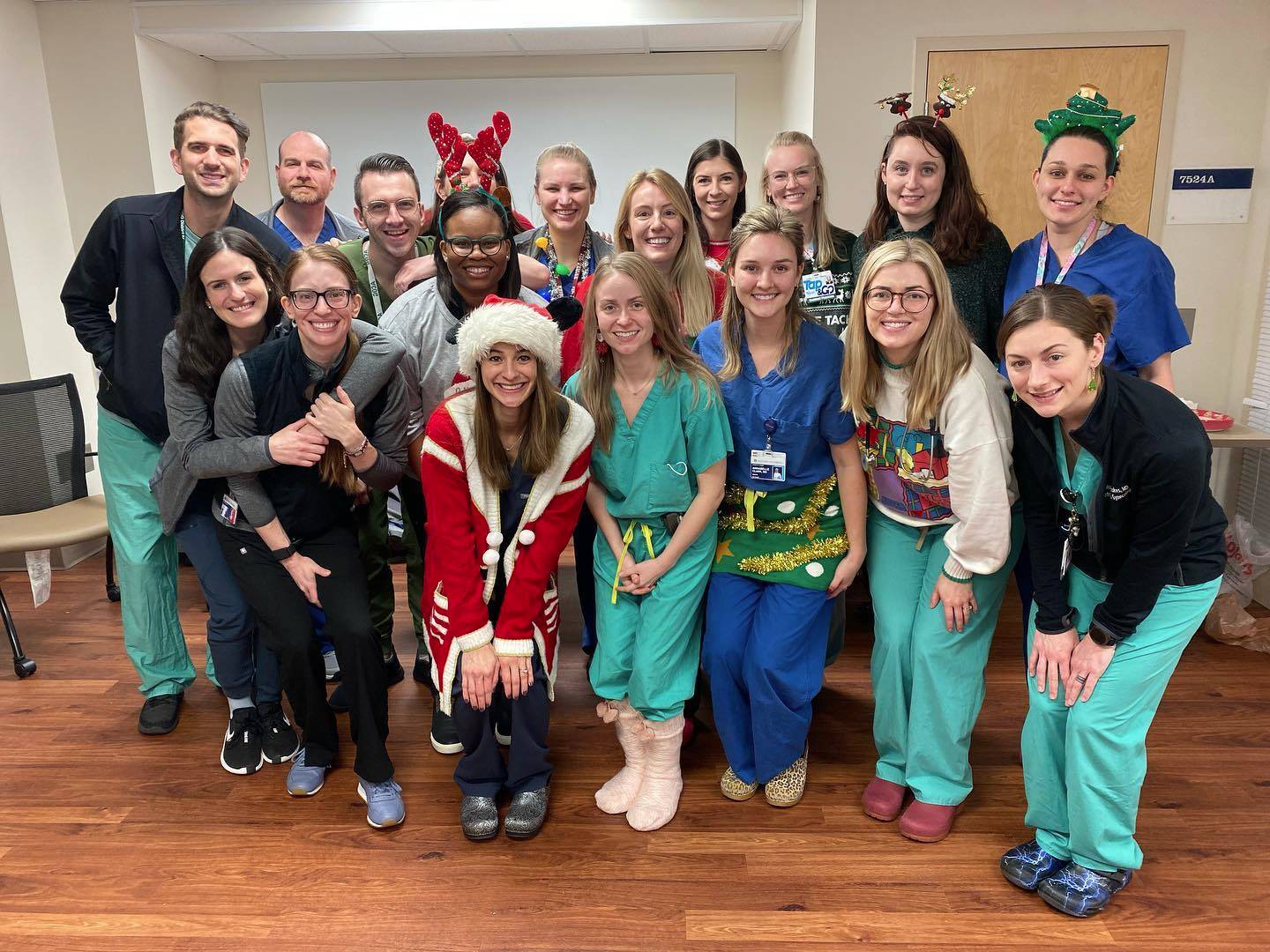
A Few 2021 - 2023 Wellness Events
Beginning in July 2017, the Accreditation Council for Graduate Medical Education (ACGME) Accreditation Council for Graduate Medical Education (ACGME) made physician well-being in the working and learning environment a priority. The common program requirements have been revised to include the following:
Section VI. The Learning and Working Environment
Residency education must occur in the context of a learning and working environment that emphasizes the following principles:
- Excellence in the safety and quality of care rendered to patients by residents today;
- Excellence in the safety and quality of care rendered to patients by today’s residents in their future practice;
- Excellence in professionalism through faculty modeling of:
- effacement of self-interest in a humanistic environment that supports the professional development of physicians
- joy of curiosity, problem-solving, intellectual rigor, and discovery
- Commitment to the well-being of the students, residents, faculty members, and all members of the health care team.
The Obstetrics & Gynecology Residency Program at Augusta University/Medical College of Georgia has established priorities for resident well-being for the academic year to include:
- Peer and Social Support Networks
- Access to Medical and Dental Care
- Access to Psychiatry/Counseling Services
- Encouraging a Healthy Lifestyle
In order to meet these priorities, a “Wellness Program,” including education and activities that focus on personal well-being and understanding of factors that lead to professional satisfaction and resilience, is integrated into the residency curriculum. The program will:
- Stress a healthy lifestyle, highlighting the following:
- Rethinking work-life balance,
- Mitigating competing priorities,
- Healthy diet,
- Sleep hygiene,
- Exercise,
- Take control of your time,
- Make time to get healthcare/help,
- Cherish your loved ones,
- Look out for your colleagues,
- Find a mentor,
- Give back,
- Embrace the privilege of being an OB/GYN.
- Educate residents annually on fatigue recognition and mitigation. Residents will complete the Stress and Impairment in Residency module from CREOG and have a didactic session on fatigue.
- Assess physician burnout. Residents will complete an assessment of “burnout” as part of the semi-annual review process, such as the “Well-Being Index” offered online from Mayo Clinic.
- Develop “Wellness Houses” that will serve to promote small group mentorship and social support. Each Wellness House will include a faculty mentor and a resident from each level of training (also a fellow from sub-specialty training). Faculty mentors, with the house members, will host activities 2 to 4 times annually, including community enrichment (service)
- Establish a “Wellness Committee” to develop the curriculum for promotion of resident well-being and assess the effectiveness of the program. The committee will include 4 residents and 2 faculty, one resident serving as the committee chairperson.
- Participate in the annual ACOG Junior Fellow National Wellness Week, emphasizing the daily wellness pillars (physical, environmental, spiritual/mindful, emotional/intellectual, and social wellness).
- Make resident health maintenance for medical and dental care a priority, allowing for planned absences up to four times annually for care. Other special circumstances for health care, including maternity care, are also supported program-wide.
- Make resources for mental health services or professional counseling widely available, publically posting information regarding institutional resources (services are free-of-charge).